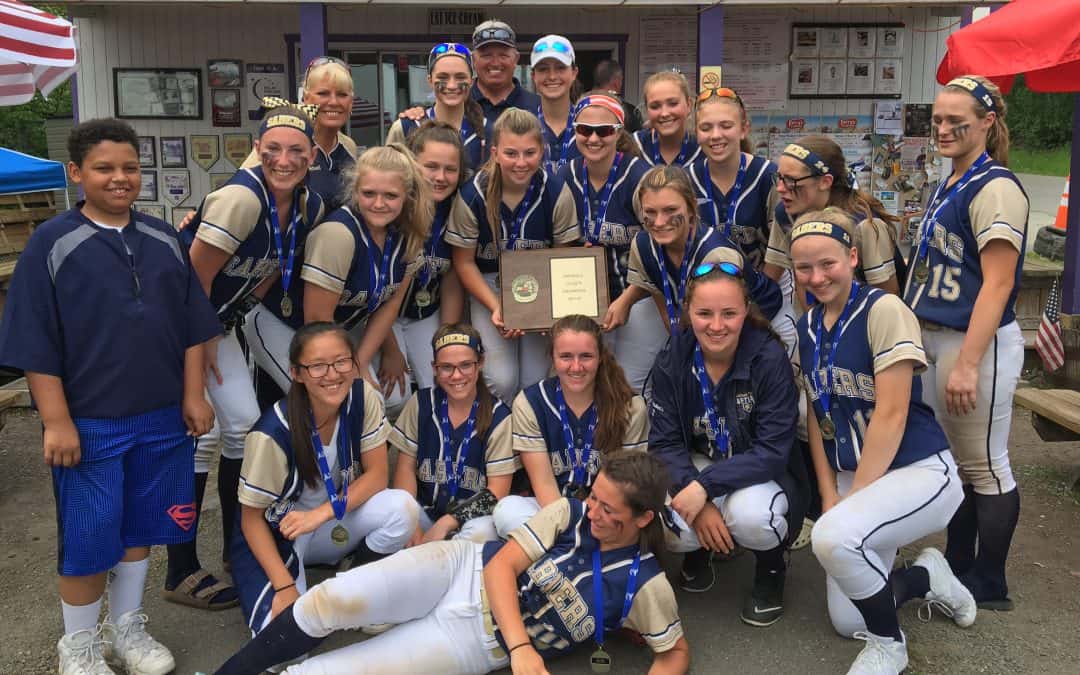
Jan 20, 2019 | Coach Profiles, Softball
Karen Bidwell
Head Softball Coach,
Susquehanna Valley High School
Conklin, NY
16U and 18U Club Coach
25 years of coaching
What’s the best thing about being a coach?
The best thing about coaching for me is being able to coach with my husband! Since 1999, I have been so lucky to have had an amazing coach by my side, throughout it all! My husband, Ken, and I are co-head coaches on the club teams, and although I am technically the head coach of our high school team, Ken is way more than an assistant. He is an invaluable asset and as much a coach as I am. My successes are certainly his as well.
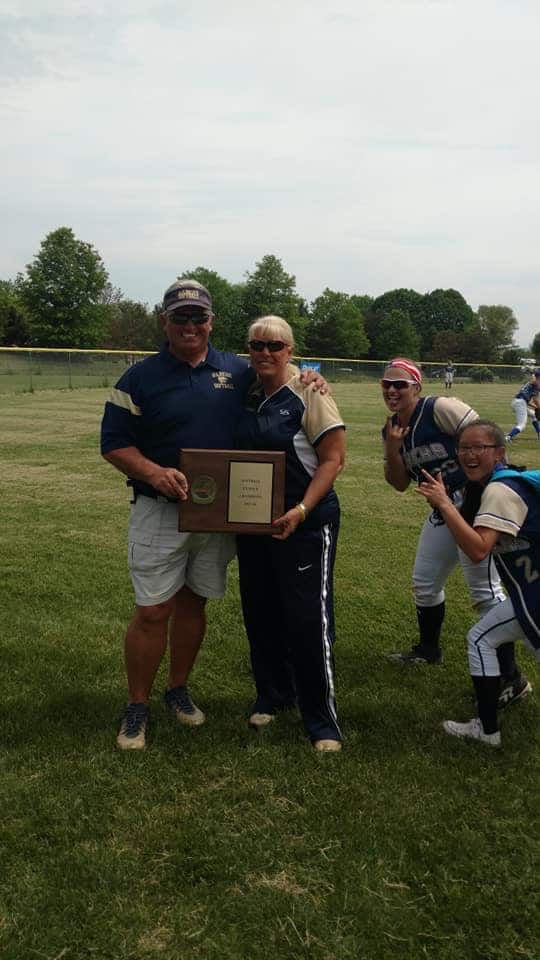
Who is your biggest motivator or influence?
My husband, Ken, has actually been my biggest motivator. He is a fantastic coach who relates to his players. He is knowledgeable, fair, caring, dedicated, and puts his heart and soul into coaching. He is everything I believe a coach should be.
Ralph and Karen Weekly hold a special place in my softball heart. As another husband and wife coaching duo, they are my idols and role models. Also, Carol Hutchins and Scott Whitlock are always so inspiring. We love to hear them speak and when we do, we learn so much and come away excited and motivated to start our season.
How did you get your start in coaching?
I knew I wanted to coach about five minutes after I got roped into my first coaching position back in 1989. I was “volunteered” to coach my son’s youth soccer team. And while I loved the coaching aspect, the sport was definitely not my passion. But, I kept going and went on to coach his t-ball and basketball teams.
I got my start in softball in 1993 when I coached my daughter’s 12U team. At the same time, I had gone back to college to get a degree in Physical Education. While I got my first high school coaching job later that year – it was in cheerleading. It wasn’t until 1999 when I finally landed a high school softball coaching position.
What do you see as your best coaching memory?
There are so many great moments in coaching. My high school highlights would include winning the NYSPHSAA Championship in 2007 and being named NYS Coach of the Year and then becoming Championship Runners Up in 2018, after losing the final game 2-1.
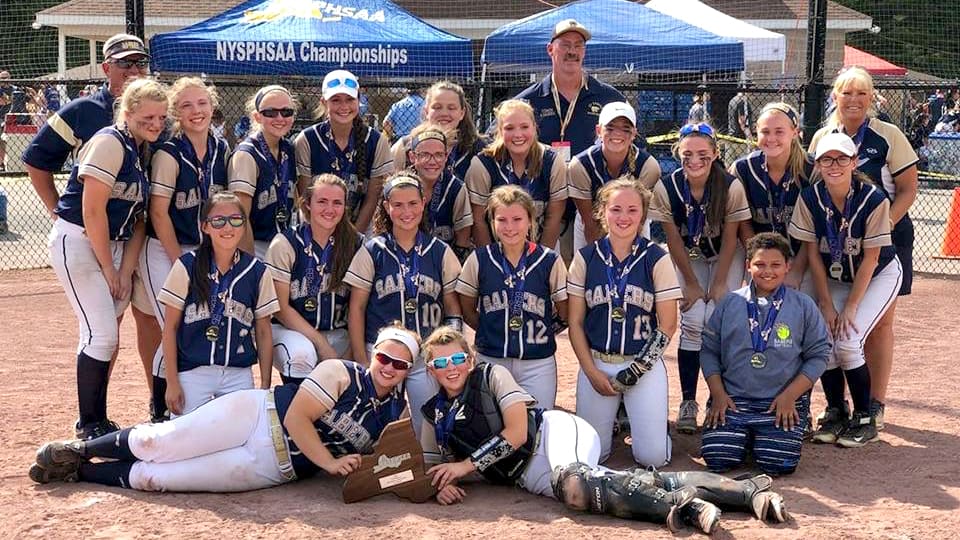
In club ball, we won tied the Triple Crown 18U East Coast Nationals in Myrtle Beach in 2015 with rain preventing a final game. And I’ll never forget in 2013, coming back from an 0-3 Saturday to win five games back-to-back with one pitcher on Sunday, to win the Tournament Championship.
But, it’s not the wins that make the memories. It’s the opportunity to coach some absolutely awesome young ladies who are not just dedicated and talented, but truly amazing people.
What was your biggest coaching disaster?
In our first year coaching a club team, we didn’t take into account the importance of team bonding and team play. We chose very talented individuals for the team, but they were just that – individuals. A team with that much talent should have been winning game after game, but we couldn’t get out of our own way. We had cliques and “mean girls” and sadly, some of the parents were just as bad as the girls.
The experience was so unpleasant that it was almost our first and last year of coaching travel ball. Fortunately, we sat down with a seasoned travel coach who gave us some great advice. We reassessed how we chose players (and parents!) the following year and it made a tremendous difference. Here we are, 16 years later, still loving it!
What is your coaching philosophy?
When our athletes leave, we want them to say their time with us was a positive, rewarding experience. We want them to not only grow and develop their skills as an athlete, but also as responsible, caring citizens and leaders. We want them to learn. To laugh. To love.
Our hope is that our athletes feel a love of the sport, as well as to feel our care and love for them as players and individuals.
How did you nail your team culture?
We learned long ago that team culture is important, but found it difficult to implement some of the things we do with our club team into our high school team. After tryouts, our club team has almost nine months together before we start playing tournaments, as opposed to high school where we have just a couple weeks to teach and practice together before three to five games a week are shoved into a three-month season.
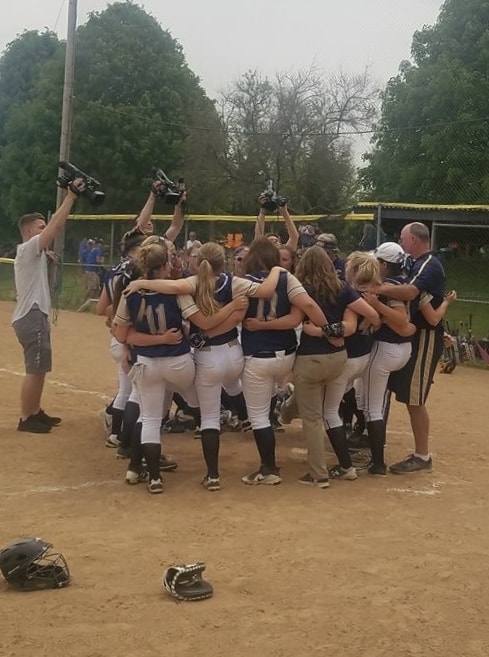
The most significant change in our coaching culture came after listening to University of Michigan’s head coach, Carol Hutchins, a few years ago at Be the Best. Her speech on culture was so tremendous that it motivated me to take a hard look at our teams (particularly our high school team) and make significant changes to our routines and rituals.
We incorporated many of Coach Hutchins’ ideas, finding that even little things like adding motivational quotes to our calendars and hanging inspirational signs in our locker room and dugout helped reinforce the positive culture we wanted for our team.
We also learned that team bonding was essential to achieve our goals, so we made sure we took the time to prioritize it into our busy schedule. We had previously believed we couldn’t afford to give up precious time for team bonding with our high school team, but after listening to Coach Hutchins, we realized we couldn’t afford not to! We found it didn’t take all that much time and the rewards were invaluable.
How do you know when you’ve made an impact on a player?
The impact we have on players is most evident by the relationships we still have with them long after they’ve moved on. Last week we had dinner with a former player who was in town for the holidays, after which she sent this message:
Little did I know 9 years ago that you two would be the most inspiring people I’d ever meet. Thank you for showing me that hard work, a kind heart, and a LOT of laughs are the most important things in life! Can’t wait for the next time! Love you guys!
That’s how you know you’ve made a difference.
In keeping with the tradition that Be the Best is a convention created for coaches by coaches, we’ve asked for inspirations and stories from your contemporaries. Click here to share something about your coaching journey. Don’t worry about making it sound good — you coach the kids, we‘ll work the words.
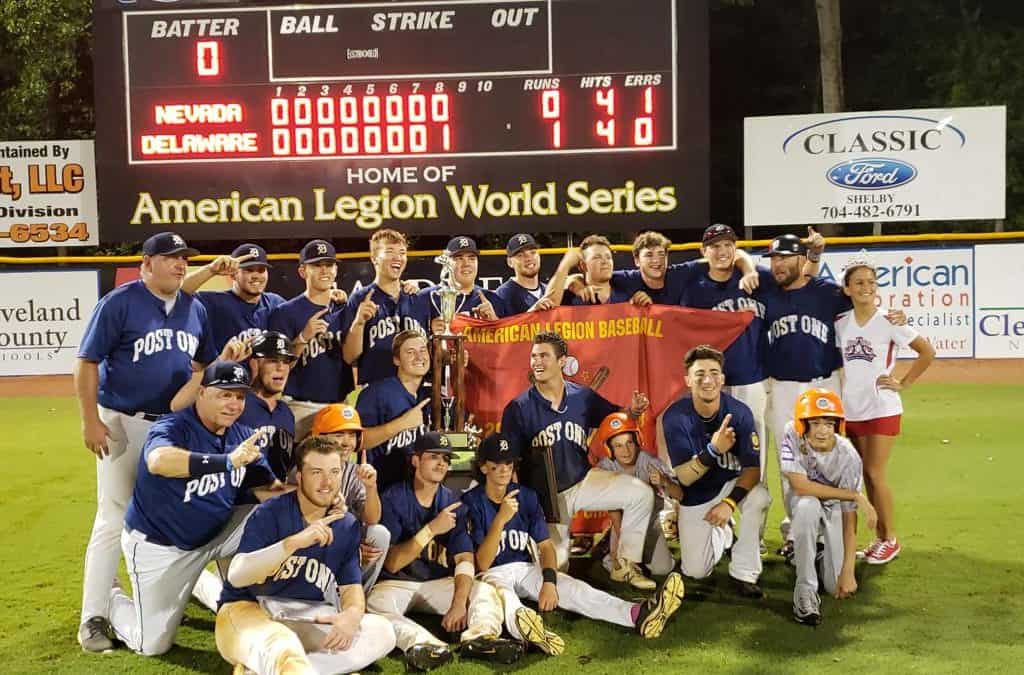
Dec 20, 2018 | Baseball, Coach Profiles, The Best Stories
Brent Treml
Baseball Pitching Coach
University of the Sciences
Philadelphia
How did you get your start as a coach?
Honestly, it all started as a favor. Back in 2010, my alma mater, Salesianum High School in Wilmington, DE, needed a coach for the freshman baseball team. I thought I’d be one-and-done, but after that season in which we went 16-0, I was hooked. I stayed for nine years.
During that time, I also coached American Legion baseball. Under my four-year tutelage as head coach of Delaware Post 1, we won one American Legion National Championship, a state championship and two state runner-up titles.
I have just begun my collegiate coaching career as pitching coach at University of the Sciences in Philadelphia.
What do you love about coaching?
I love the camaraderie that exists between coach and player and coach to coach. I love the highs and lows that come with working with players every single day. And, most of all, I love seeing the players buy into the culture we are trying to create and seeing a bunch of individuals turn into a unified force by the end of the season.

What is your best coaching memory?
The easy answer is winning the National Championship in 2018 or our first State Championship in 2017, both of which were filled with proud accomplishments and amazing moments. But, my personal favorite game was defeating Stahl Post 30 in the 2016 American Legion Semifinals.
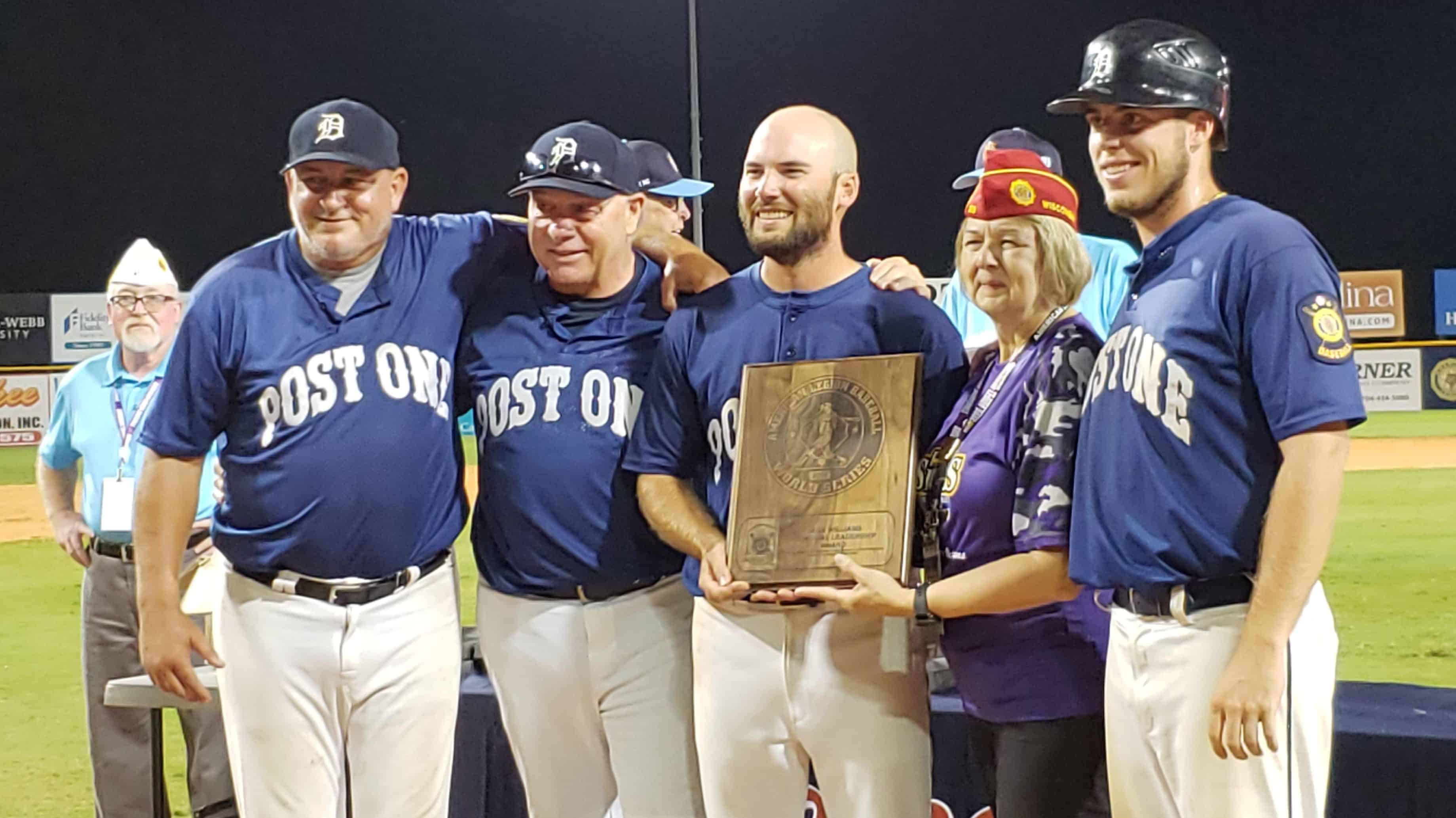
Stahl had long been the team to beat in Delaware and there was a passionate rivalry between us. That year we split our first four meetings before going on to end their season on their field in the playoffs. It felt like a changing of the guard; after the victory we were viewed as the top dogs in Delaware, having finally earned the respect we deserved.
What was your biggest coaching disaster?
This was a very public disaster. It actually made it to number three in Sportscenter’s Top Plays that night! We were playing Las Vegas in the American Legion World Series Championship which was televised on ESPNU. In an unbelievable pitchers’ duel, the game remained scoreless into the 7th and baserunners were at a premium. We were able to get a runner to 2nd with one out and our number three hitter at the plate. We decided to pinch run our fastest and youngest bench player to increase our chances of scoring.
Las Vegas pulled a trick pick-off play at second, ending our scoring threat and squashing our momentum in a game where every baserunner was like gold. The Las Vegas pitcher stepped off the mound and pump-faked a throw to second, with the middle infielders and outfielders selling the fake beautifully. Our runner dove back to the bag, as he should, got up and began looking for the ball and then to me as the third-base coach.
And here’s where I kick myself. I began yelling, “Stay on the bag!” while simultaneously pointing to second base. The stadium was so loud that the runner couldn’t hear me, but thought my pointing was signaling that the ball was in the outfield. So, he took off for third. Of course, the pitcher, who still had the ball, was able to get him out easily.
I should have had my hands up, showing the runner my palms in our universal “stay” signal, but instead, confused him by pointing to the bag instead.
But, even this disastrous story has a happy ending. We won the title with an eighth inning walk off!
How did you create your winning team culture?
The key to creating a winning culture is for everyone to feel like they have ownership in the success of the team. Coaches and players have to have open and respectful dialogue about lineups and strategies. It’s much easier for players to buy into what you’re doing as a coach if they understand why. Why is the lineup constructed this way? Why are we trying this offense move in this particular situation? Why is our pitching rotation lined up for these specific opponents?
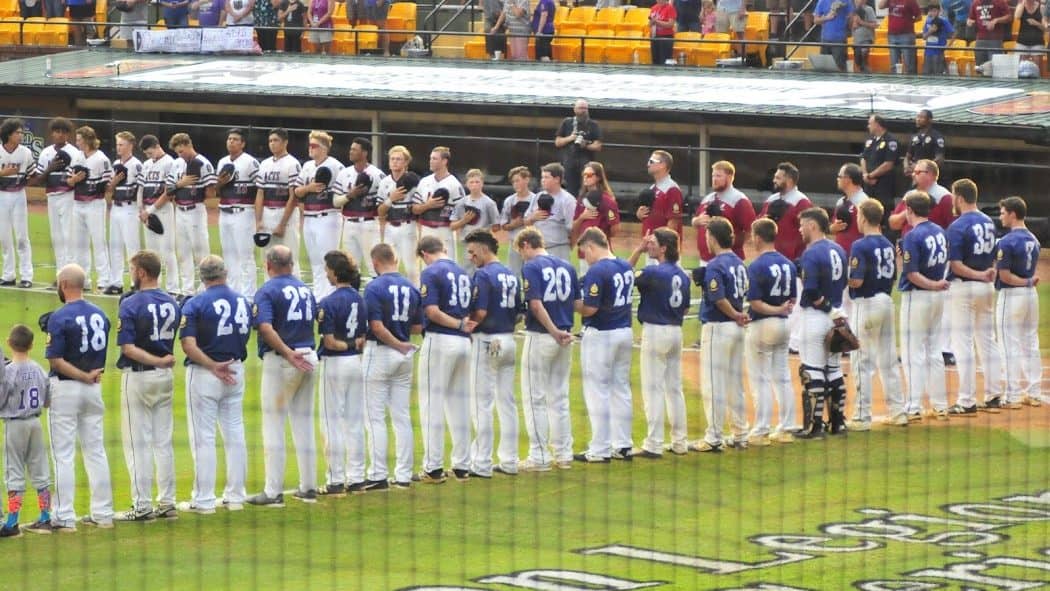
Bad culture breeds when we’re kept in the dark. And that goes both ways – for coaches as well as players. Players need to understand and accept their role, but coaches have to be willing to hear, and consider, what their team has to say as well. This give and take goes a long way toward building trust and confidence. It’s important for everyone to believe that decisions are made to make the team the best it can be, not for selfish reasons or to hurt feelings. To earn respect, you have to make sure your strategies are backed up with honest assessments and explanations for how your decisions will help the team win.
What is your personal coaching philosophy?
I want my team to be confident and aggressive. To know what goal they are going for. And to believe that nobody is in their way but themselves. I am an ultra-sticker during practice, focusing on the little details and not relenting until we have perfected what we’re practicing. I believe in making practice difficult, both physically and mentally so that the game feels easier.
On game day, I am ultra-positive. I never get on a player, unless there’s an obvious lack of effort involved. I want my players to feel little to no pressure during the game so they can be better prepared and more confident in making those instinctual, split-second decisions. I want to take the pressure off my players so they can place it on the opponent, giving us the advantage.
I like to talk about our goals in terms of visuals, like a dogpile. I will then come back to that visual throughout the year as we evaluate our performance. Are we taking steps toward the dogpile or away from it?
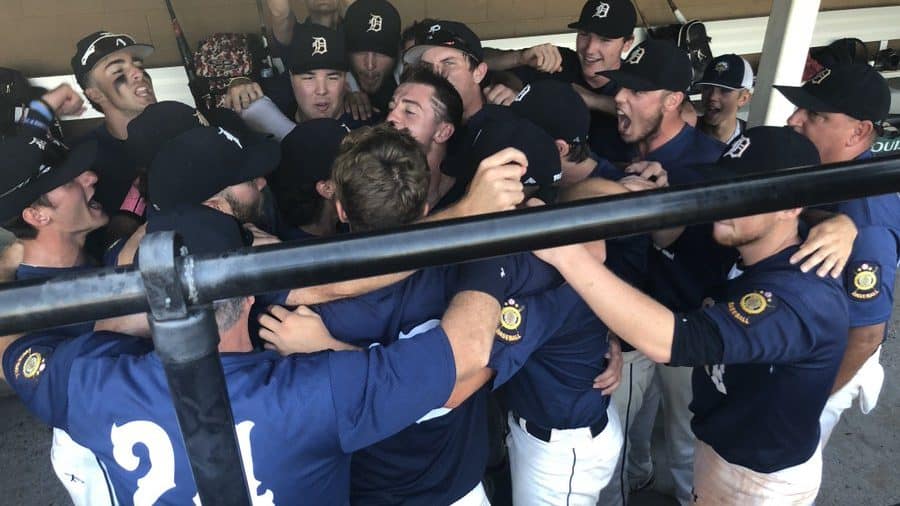
Is there one coach you particularly respect?
One of my biggest motivators and influencers was Dennis Walker, my high school coach at Salesianum. His practices were often stressful and difficult, but in preparing the team, he found a way to bring the team together as a by-product. He never let a teachable moment pass by. Ever. Though, he often left it up to us to figure out the lesson on our own. In my own coaching, I mimic this trait of his. Going off-script at times and doing something zany to let the players figure out the why on their own helps break up practice and make it less mundane. And the players more often than not, do learn the lesson on their own.
What are the most important qualities of a coach? Of a player?
To me, the most important quality of a coach and a player are the same. You have to be a sponge. This is a game of adjustments, so both coaches and players must be comfortable and willing to adjust to and try new things.
As a coach, you need to always be learning from other coaches, including your competition. You have to be open to discussing and debating with other coaches and share techniques and situations. Any successful coach out there has a strong network of other coaches with whom to bounce things off. I’ve yet to see a coach find success by existing in a silo. I, personally, have been blessed to coach under, with and against some brilliant coaches who have taught me so much and from whom I continuously “steal” ideas to add to my own coaching philosophy.
As far as players go, the worst trait you can possess is that of being un-coachable. As soon as you believe you know more than your coach you begin rejecting help and your growth in the sport is stunted. That doesn’t mean you have to blindly accept every decision or idea, but it does mean that as a player, you have to be respectful, evaluative and willing to try new things. Just like a coach!
Even Hall of Famer, Cal Ripken, Jr. went through countless different swings throughout his career as he adjusted to different pitchers. Think of it this way, if you were having great success, nobody would be trying to change you. Openness to new ideas is absolutely crucial to success whether you’re a coach or a player.
In keeping with the tradition that Be the Best is a convention created for coaches by coaches, we’ve asked for inspirations and stories from your contemporaries. Click here to share something about your coaching journey. Don’t worry about making it sound good — you coach the kids, we‘ll work the words.









